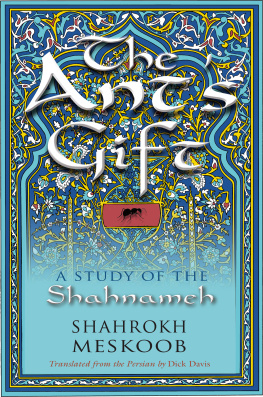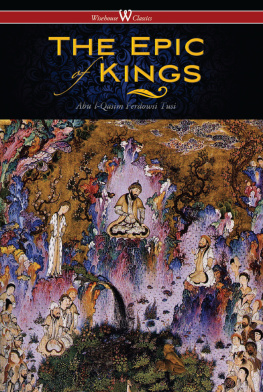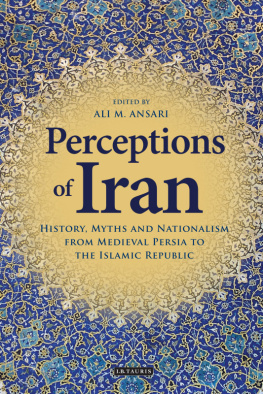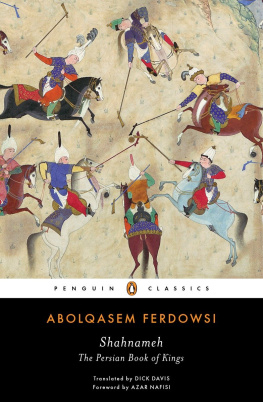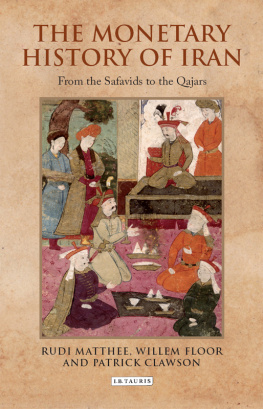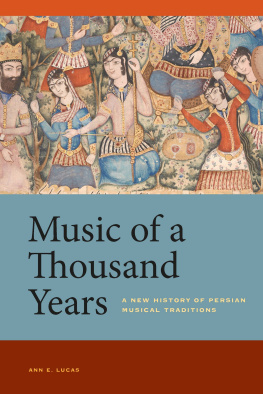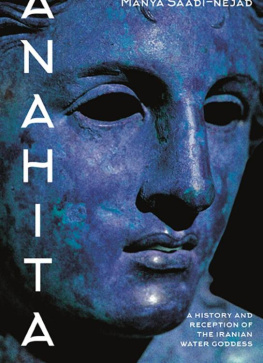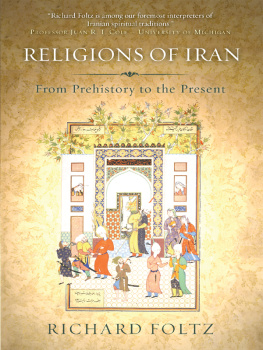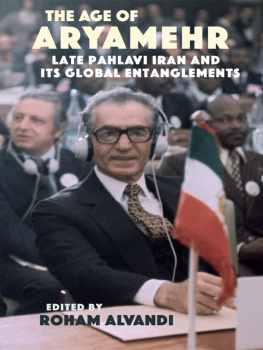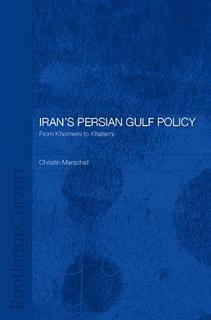Table of Contents
Guide
Page List


Select Titles in Middle East Literature in Translation
The Book of Disappearance: A Novel
Ibtisam Azem; Sinan Antoon, trans.
A Cloudy Day on the Western Shore
Mohamed Mansi Qandil; Barbara Romaine, trans.
Gaia, Queen of Ants
Hamid Ismailov; Shelley Fairweather-Vega, trans.
In the Alley of the Friend: On the Poetry of Hafez
Shahrokh Meskoob; M. R. Ghanoonparvar, trans.
Jerusalem Stands Alone
Mahmoud Shukair; Nicole Fares, trans.
The Slave Yards: A Novel
Najwa Bin Shatwan; Nancy Roberts, trans.
Tenants and Cobwebs
Samir Naqqash; Sadok Masliyah, trans.
Turkey, Egypt, and Syria: A Travelogue
Shibl Numn; Gregory Maxwell Bruce, trans.
For a full list of titles in this series, visit https://press.syr.edu/supressbook-series/middle-east-literature-in-translation/.

Translation of Armaghan-e Mur: Jostari dar Shahnameh (Tehran, 1384/2005, 275 pages, unpublished) from Persian to English sponsored by the Persian Heritage Foundation.
Copyright 2021 by Dick Davis
Syracuse, New York 13244-5290
All Rights Reserved
First Edition 2021
21 22 23 24 25 266 5 4 3 2 1
The paper used in this publication meets the minimum requirements of the American National Standard for Information SciencesPermanence of Paper for Printed Library Materials, ANSI Z39.48-1992.
For a listing of books published and distributed by Syracuse University Press, visit https://press.syr.edu.
ISBN: 978-0-8156-3701-1 (hardcover) 978-0-8156-3708-0 (paperback) 978-0-8156-5510-7 (e-book)
Library of Congress Cataloging-in-Publication Data
Names: Miskub, Shahrukh, author. | Davis, Dick, translator.
Title: The ants gift : a study of the Shahnameh / Shahrokh Meskoob ; translated from the Persian by Dick Davis.
Other titles: Armaghan-i mur. English
Description: Syracuse : Syracuse University Press, 2021. | Series: Middle East literature in translation | Summary: The Ants Gift is a study of the major themes of the Shahnameh (the national epic of Iran completed in 1010 by the poet Ferdowsi) Provided by publisher.
Identifiers: LCCN 2020037535 (print) | LCCN 2020037536 (ebook) | ISBN 9780815637011 (hardcover) | ISBN 9780815637080 (paperback) | ISBN 9780815655107 (ebook)
Subjects: LCSH: Firdawsi. Shahnamah.
Classification: LCC PK6458 .M58213 2020 (print) | LCC PK6458 (ebook) | DDC 891/.5511dc23
LC record available at https://lccn.loc.gov/2020037535
LC ebook record available at https://lccn.loc.gov/2020037536
Manufactured in the United States of America
Contents
Preface to Persian Text
HASAN KAMSHAD
SHAHROKH MESKOOB died on Tuesday 23rd of Farvardin (12th of April, 2005) in a hospital in Paris, and was buried the following week in the Behesht Zahra cemetery, in the area reserved for artists. When I reached him on his deathbed his first words were about this book, and he asked me to reread the manuscript and correct any errors.
More than any of his other works, writing this book, with its unadorned and incomparable language, wore Shahrokh out and exhausted his soul. He revised and rewrote its chapters in his effort to have his language do justice to its subject; his pen moved with difficulty and his thoughts came confusedly and thick and fast. He had loved Ferdowsi and the Shahnameh all his life; this was his farewell to both of them, and he didnt want his last words to be spoken carelessly. He considered speech to be the life-giving elixir, the antidote to death. May this book be a fitting and lasting memorial to him.
Any faults or printing errors in this book are clearly my responsibility.
Ordibehesht 1384 (AprilMay 2005).
Translators Note
DICK DAVIS
AS HASAN KAMSHAD , the editor of the Persian text of The Ants Gift, has noted, this was Shahrokh Meskoobs last book, and he was still working on it at the time of his death. Had he been able to give the book a final revision Meskoob would certainly have corrected the few small slips that were still present in the text as he left it. I have silently corrected a very small number of obvious and trivial factual errors within the text; more ambiguous statements (for example that Jamshid is the first man in Iranian mythology, something that is not confirmed by the Shahnameh itself) I have left as Meskoob wrote them since he may have meant them in a way that he would have explained had he had time to give the text a final revision.
The reader should be aware that by we and our Meskoob is of course referring to Iranians and Iranian culture specifically, and not to any potentially more international audience, even though the reader may well feel that such remarks are frequently valid beyond the specifics of Iran and its literary and cultural history.
In the opening chapters of this book the names Hormozd and Ahura Mazda refer to the same mythological entity. In the books last chapter Hormozd is usually used in the same mythological sense, but a few uses of the name refer to the historical king Hormozd lV (ruled 531579); the context indicates which usage is correct.
Authors Introduction
THE ANT S GIFT is an inquiry into a few of the concepts essential to the Shahnameh, divided into five chapters: Time, Creation, History, Sovereignty, and Speech.
Time is first and last, it is the bringer and bearer away of things and the hidden thread which links these chapters together. In some mythologies time existed even before Creation, and in others it is the first thing to be created.
History is the story of mans past in time.
Sovereignty is the management of the wheel of time in the world, according to the way of heaven.
And finally Speech is the means by which the poet is able to escape from the destructive trap of time, the way in which he dies without dying. Why is it that Ferdowsi says that after death I shall not die, since I am alive?
The Shahnameh is a historical work that is both an account of Irans history in the world, and has itself been, from its first appearance, a strong pillar in the history of the Iranian people. Above and beyond this, the Shahnameh is a work that arises from history and is a product of tradition, one that as well as giving us insight into the preconceptions and religious and intellectual beliefs of its creator contains the source of many narratives from the distant past; for example:
The mythology and worldview of the Avesta.
The practical and ethical wisdom of the Pahlavi Mirror for Princes genre.
Royal chronicles, the political and social culture of the Sasanids.
The written and oral culture of the population of Khorasan during the first centuries of the Islamic era.
It organized and preserved whatever had come down to the population of Khorasan by either oral or written means, whether consciously or as often as not unconsciously, such as mans knowledge, his conception of this world and of the world to come, ethics and behavior, national sentiment, worldview, andin a wordtheir social memory. What reached Ferdowsi were not simply Zurvanite and Mithraic ideas, or Zoroastrian and Mazdean didactic notions, and so on, but through the makers arrangementand sometimes lack of arrangementit was all of these; that is, the accumulated social memory of an invisible past, and in another way of its religious and cultural beliefs, its customs and social norms.

